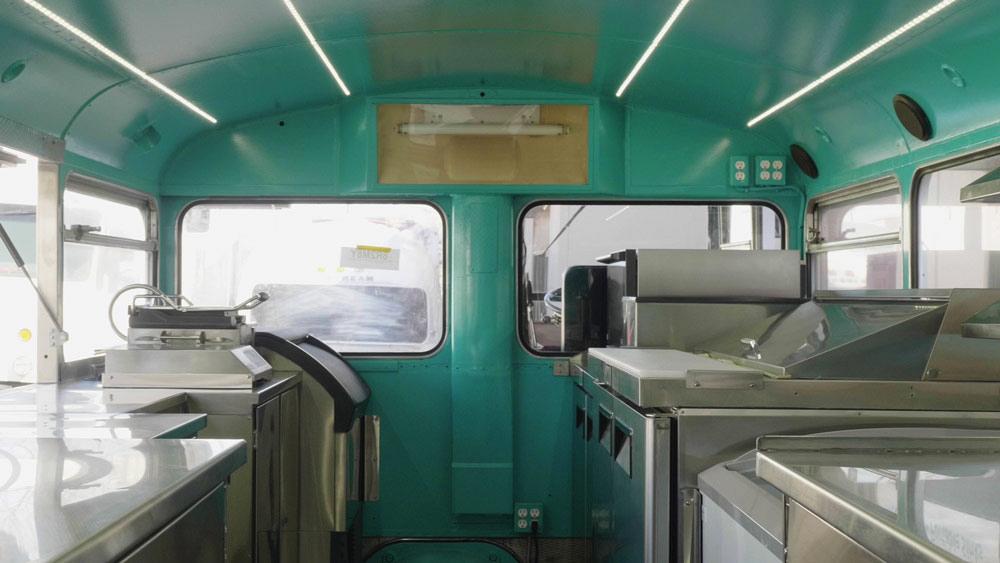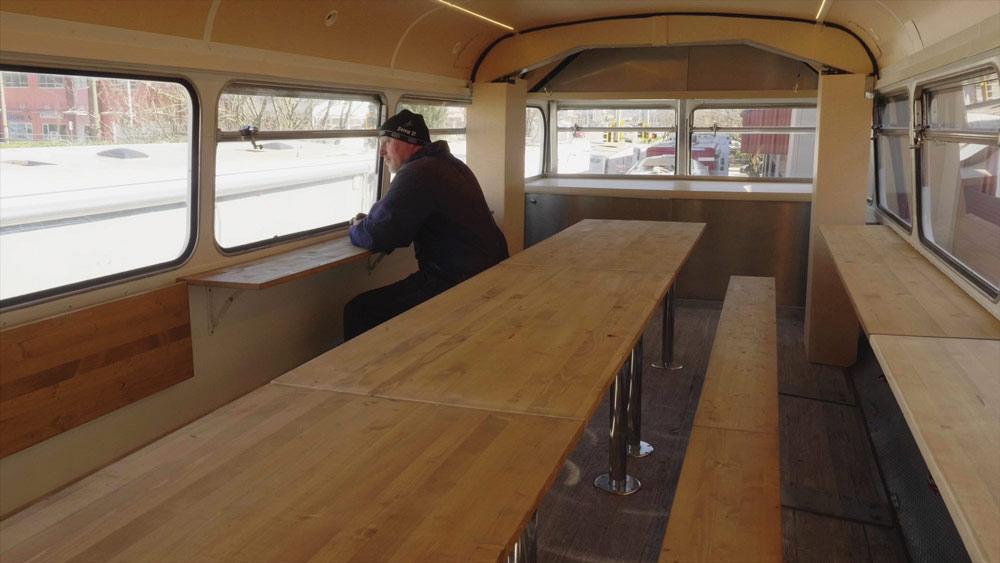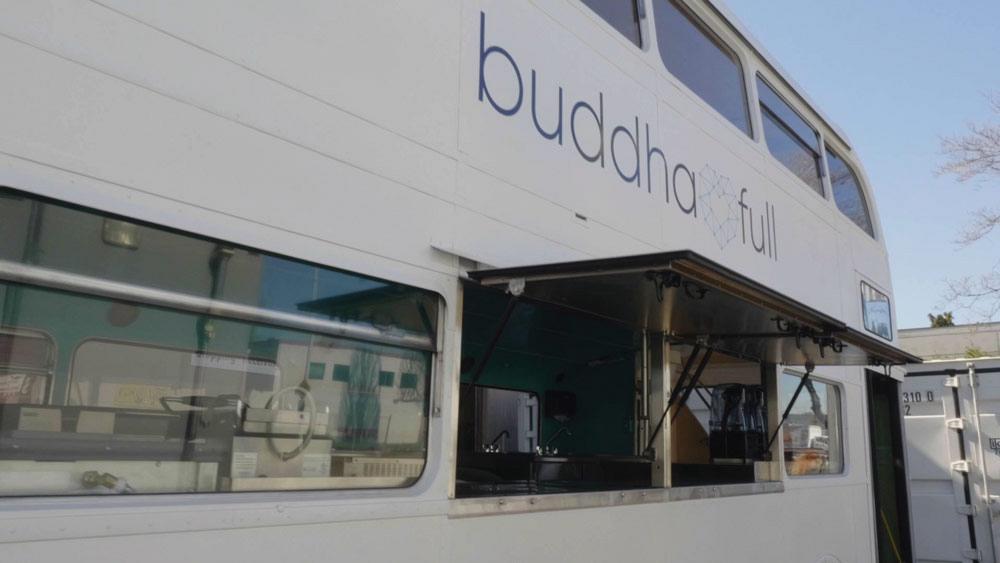Editor
- FMA
- The Fabricator
- FABTECH
- Canadian Metalworking
Driving production sophistication at Apollo
Surrey, B.C.-based food truck manufacturer gets push for fab streamlining with “ghost kitchen” partnership
- By Rob Colman
- September 1, 2021
- Article
- Fabricating
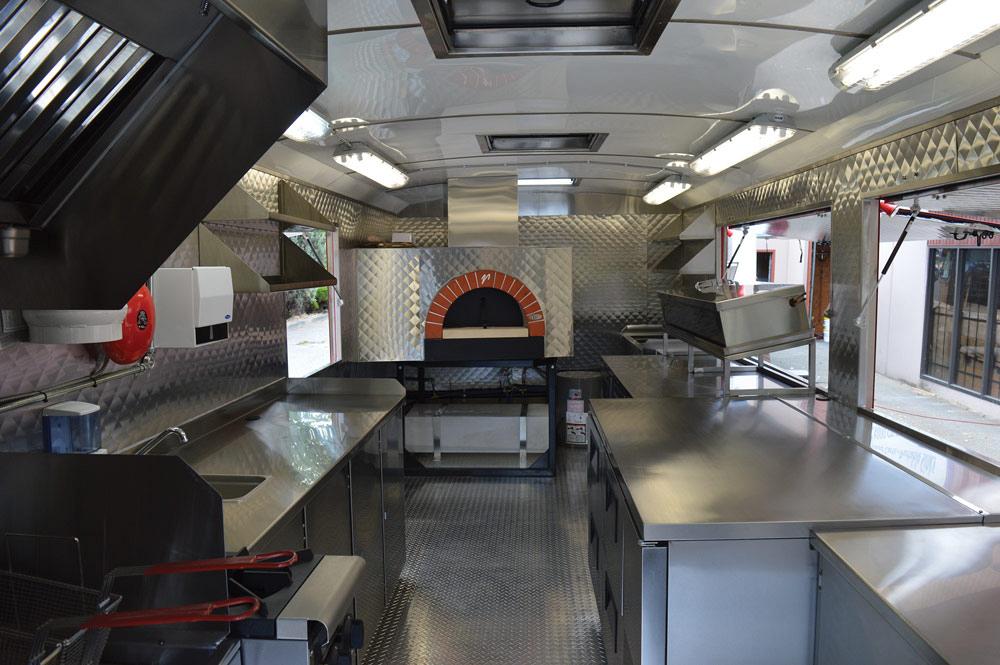
Apollo has been involved in the manufacture of a variety of food trucks with unique requirements. This has prepared it for the rise of trends such as “ghost kitchens” that are being used to serve the needs services such as Uber Eats and Skip The Dishes. Photos: Apollo
Every new contract a fab shop wins is an opportunity to hone its operations. Apollo Custom Manufacturing’s recent partnership with a Florida-based company to build “ghost kitchens” in parking lots across North America is a good example.
The Surrey, B.C.-based food truck builder has been tapped by REEF Technology to build what REEF refers to as “neighbourhood kitchens” parked for use by food-delivery services such as Skip the Dishes and Uber Eats. REEF already operates such sites in Toronto and other Canadian cities as a result of its purchase of Impark.
What this means for Apollo’s fab operations is a drive for more streamlined production.
Driving Beyond a Trend
Rob Mallory joined Apollo about six years ago as its sales and marketing representative.
“I’ve known Apollo’s owner, Norm Kerfoot, since junior high school,” said Mallory. “At the time I joined the company, I was looking for a change of career and he needed someone with corporate and sales experience. I thought I’d be with the company for a year; I saw food trucks as a trend and that I could help the company grow that business. But the whole mobile vending concept seems to have taken off beyond a short-term trend, and since COVID hit, on the mobile kitchen side, it’s even stronger.”
Mallory noted that while the pandemic has kept people out of restaurants, it hasn’t stopped them from wanting restaurant-quality food, so there has been an increased demand for third-party delivery. Mobile kitchens simplify the delivery model.
The Cart Before the Truck
Kerfoot started fabricating work in his teens, bouncing around a number of jobs before landing work at a company that built traditional coffee trucks. After developing his skills there, he decided to launch his own business.
“He started off building hot dog carts,” said Mallory. “He sold a lot of them into the U.S. and quickly understood what health boards south of the border expected of this type of product – propane codes and other details. So gradually the product he was delivering became more lavish, with all the possible bells and whistles and the associated certifications.”
About eight years ago, the company moved on to building full mobile kitchens.
“Norm had already established good relationships with local authorities, so he knew how to properly manage mobile gas systems, mobile water systems, and, of course, electrical,” said Mallory. “So, when the food truck phenomenon started, he was well positioned to take advantage of it. A lot of backyard fabricators tried to get into this business but couldn’t make it all come together and work and be certifiable. We’re probably one of the main survivors in this business in western Canada, and among only a handful across the country.”
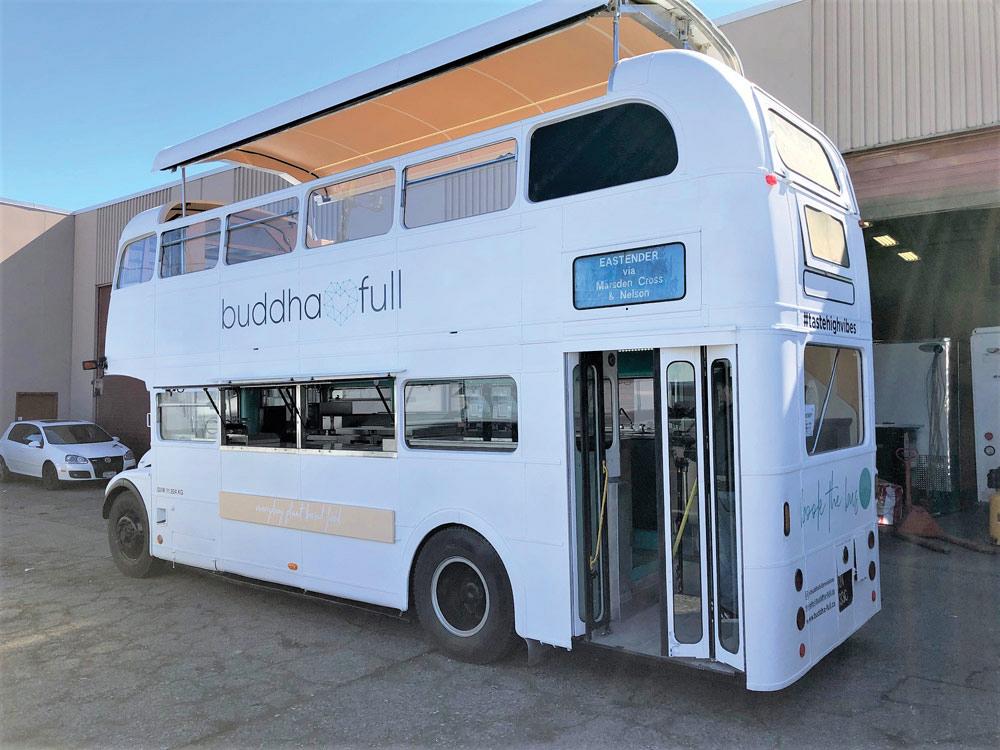
This is a double-decker bus the Apollo team refitted. It involved installing a working kitchen on the lower level and a seating area on the top deck. In order to get that seating on the top, it was necessary to cut the roof off and put gas shocks on it so that it would raise and lower.
The Fun of the Truck Craze
Apollo has evolved alongside the food truck craze, learning along the way how to meet the needs of a variety of customers.
“Initially, when food trucks became really popular, it was typically a Grumman-style van that everybody wanted – pretty much a nice square box that you can step into with a floor low enough that it allows the customer to see what is going on in the truck through the service window,” said Mallory. “It was a good, serviceable vehicle, and everyone wanted one. But as the food truck craze went on, we had people coming to us with all sorts of unique ideas to make a marketing statement. They would bring us the oddest vehicles to put kitchens into. Thankfully, we pride ourselves on being able to take on those oddball jobs that our competitors couldn’t.”
Among the vehicles that came into the Apollo shop were a retired fire truck, small transit vans, and an old horse trailer. But the job Mallory is most proud of is a double-decker bus the Apollo team refitted.
“It involved installing a working kitchen on the lower level and a seating area on the top deck,” he explained. “In order to get that seating on the top, we had to cut the roof off and put gas shocks on it so that it would raise and lower.”
Mallory said that unique jobs like that are less common now, though.
“Now we’re seeing more chefs and corporate people coming to us who know there need to be efficiencies in how a kitchen works, so square boxes are now back in vogue,” he said. “Now if people want to be unique, they are more often wrapping the vehicle in a specific design they want.”
The variety of work, however, is what Mallory considers to be key in keeping the Apollo team enthusiastic.
“The team takes a lot of pride in the jobs we’ve done. If you have a trade and are able to do something new with it each day, I think that’s good for morale for everybody.”
Increased Sophistication
The trailers that companies like REEF require are another step up in sophistication in terms of the kitchens themselves. The units are generally between 24 and 28 ft. long, substantially larger than the 14- to 18-ft. box kitchen in a food truck. A food truck is usually 7 ft. wide, whereas these trailers are generally 8 ft. wide.
“These trailers provide a lot of amenities you don’t get in a food truck, including air conditioning, special flooring, and heating,” said Mallory. “It’s hard to find good people, so some customers are asking for more amenities, knowing that if they can keep staff as comfortable as possible, they are more likely to keep them longer. For instance, one customer buying a new trailer requested ceiling heights of about 7 ft. 5 in. because their top chef was 6 ft. 5 in. tall.”
With REEF in particular, of course, the volume of appliances is higher than in a standard food truck as well.
“The versatility of these kitchens is much greater,” said Mallory. “And they have to be because if they are out courting companies for their takeout business, they have to have the ability to cook a wide variety of items. They have to be sure they can handle any menu.”
Fab Challenges
Asked what the biggest fabrication challenges are in building out a food truck, Mallory didn’t hesitate.
“Right now it’s the same problem everyone else has – supply,” he said. “The price of stainless and tube has gone through the roof, and it’s just not available sometimes. A couple weeks ago Norm bought the last few sheets of stainless we needed for a project and had to buy it out of Toronto. That’s not something we’re used to having to do.”
On the technical side of fab work, Mallory said it’s getting the welds right.
“The fab work has to withstand the flexing that goes on in the truck boxes or trailers when you hit a pothole, things like that,” he said. “We have to be very conscious of welds going into countertops and sinks. A lot of our competitors early on didn’t pay attention to that, and with the constant motion in the trucks, welds were cracking. That’s a constant issue you have to be attuned to.”
Apollo has a team of 10 on its shop floor, five of whom are certified welders, but Mallory noted that only three are deployed at any one time. One welder who has been with the company since his apprenticeship is the stainless steel specialist. A second manages the heavy steel build-out of the truck boxes, and he brings others on board to support his work as needed.
“Having a stainless steel specialist is key for our business,” said Mallory. “Getting that kind of specialist in any market is a challenge, so it’s great to have him on board. We are welding our own sinks and counters, and everything has to be perfect.”
Upping Production Flow
Like in any startup, for many years Apollo’s fab operations ran in an ad-hoc manner as jobs came in, but that has gradually changed.
“We now have the shop set up with four bays for different stages of production,” said Mallory. “The steel framework is built in the first bay, the interior install is managed in the second bay, appliances are installed in the third, and the fourth is where inspectors review the product to ensure it meets all requirements.
“With this setup, our team members are dedicated to specific areas of the shop and we have little to no personnel movement between bays. We are trying to run the shop more like a mass production facility as best that works. It has to be like that for the work we plan to do for REEF.”
This move also has required the hiring of new team members and adding new equipment.
“We’ve just leased a couple more CNC-equipped press brakes to create greater efficiencies, and we’ve brought on a senior press brake manager to tool up that equipment and manage their throughput,” said Mallory. “We have a great team, but it’s a young team. Having a senior manager in that area of the shop who has coaching skills that can help further develop that crew is important to us.”
The new press brakes are part of a drive at Apollo to prepare common assemblies used in most trailers so they can be pulled off the shelf as necessary.
“Each customer has different requirements, and part fab can take a long time,” said Mallory. “We’re hoping that getting assemblies that are consistent with every build prepped well ahead of time – things such as hood fans and vent backings – will speed up production work.” The shop will be hiring another welder for this department as well.
“We have wanted to do this for some time, but it took bringing on a partner like REEF to make it feasible,” he said.
According to Mallory, the key is for Apollo to keep evolving with customers. Its fab team is poised and ready to make it happen.
Editor Robert Colman can be reached at rcolman@canadianfabweld.com.
Apollo Custom Manufacturing Ltd., www.apollomanufacturing.ca
About the Author

Rob Colman
1154 Warden Avenue
Toronto, M1R 0A1 Canada
905-235-0471
Robert Colman has worked as a writer and editor for more than 25 years, covering the needs of a variety of trades. He has been dedicated to the metalworking industry for the past 13 years, serving as editor for Metalworking Production & Purchasing (MP&P) and, since January 2016, the editor of Canadian Fabricating & Welding. He graduated with a B.A. degree from McGill University and a Master’s degree from UBC.
subscribe now


Keep up to date with the latest news, events, and technology for all things metal from our pair of monthly magazines written specifically for Canadian manufacturers!
Start Your Free Subscription- Trending Articles
Aluminum MIG welding wire upgraded with a proprietary and patented surface treatment technology

Hypertherm Associates partners with Rapyuta Robotics

Protected and productive: welding helmet tech

HGG Profiling Equipment BV names Western Canada area sales manager

Compact weld camera monitors TIG, plasma processes
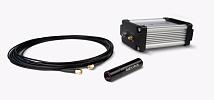
- Industry Events
CTMA Economic Uncertainty: Helping You Navigate Kitchener Seminar
- May 2, 2024
- Kitchener, ON Canada
Automate 2024
- May 6 - 9, 2024
- Chicago, IL
ANCA Open House
- May 7 - 8, 2024
- Wixom, MI
17th annual Joint Open House
- May 8 - 9, 2024
- Oakville and Mississauga, ON Canada
MME Saskatoon
- May 28, 2024
- Saskatoon, SK Canada













